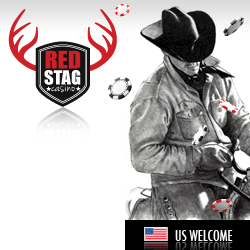Oklahoma Sports Betting Bills Move Forward in House Subcommittee
February 12, 2025 Marija D

The push for legal sports betting in Oklahoma gained momentum this week as two bills, HB 1047 and HB 1101, cleared the House Appropriations and Budget Select Agencies Subcommittee with a unanimous 5-0 vote. These measures now move to the full Appropriations Committee as legislators continue debating how to regulate sports wagering in the state.
Key Provisions of HB 1047 and HB 1101
Representative Ken Luttrell, a longtime advocate for gaming expansion, introduced HB 1047, which would legalize sports betting through partnerships with Native American tribes that hold gaming compacts with the state. The bill proposes a 10% revenue share for tribes participating in sports betting. Should HB 1047 fail, HB 1101 would serve as a fallback measure, allowing voters to decide the matter through a referendum.
While neither bill specifies whether sports betting would be limited to retail locations or include digital wagering, Luttrell has indicated that tribes would determine the scope of their operations.
Tribal Negotiations and Governor Stitt’s Influence
Tribal involvement is essential to any gaming expansion in Oklahoma. The Oklahoma Indian Gaming Association (OIGA) has emphasized that any new gaming proposal must align with existing tribal-state compacts.
“Oklahoma’s Tribal Nations have always been willing to sit down and talk, in a respectful manner, about what is best for Oklahoma. That has not changed,” said OIGA Chairman Matthew L. Morgan before the start of the 2025 legislative session.
However, Governor Kevin Stitt’s strained relationship with tribal leaders presents a significant challenge. Stitt has previously attempted to introduce sports betting measures that tribes strongly opposed, citing concerns about their sovereignty and exclusivity rights. Many tribal leaders believe negotiations may have better prospects once Stitt’s term ends in 2026.
Oklahoma’s Growing Gaming Market
Oklahoma is the second-largest Indian gaming state in the U.S., behind California, with 39 tribes operating nearly twice as many casinos as its West Coast counterpart. The Chickasaw Nation’s WinStar Casino—the world’s largest casino by floor space—stands as a testament to the state’s expansive gaming market.
For sports betting to move forward, at least four tribes must agree to the proposed model tribal-state compact, which then requires approval from the U.S. Department of the Interior. Under the compact, participating tribes would pay the state a 10% revenue share on adjusted gross sports betting revenue.
Competing Legislation and Future Challenges
HB 1047 and HB 1101 are not the only bills in consideration. Senator Dave Rader’s SB 125 also seeks to legalize retail and online sports betting through an amended tribal gaming compact. However, Rader’s bill features a tiered revenue-sharing model, with tax rates starting at 5% for the first $5 million in revenue, rising to 7% for revenue exceeding $10 million.
Both bills must navigate committee hearings, House and Senate approvals, and potential veto risks before becoming law. Given Oklahoma’s long history of legislative hurdles on gambling issues, the road to legal sports betting remains uncertain. However, with increasing public interest and neighboring states embracing wagering, pressure is mounting for Oklahoma lawmakers to reach an agreement before the legislative session ends on May 30, 2025.
Source:
Oklahoma House Advances Betting Bills, sbcamericas.com, February 11, 2025.















